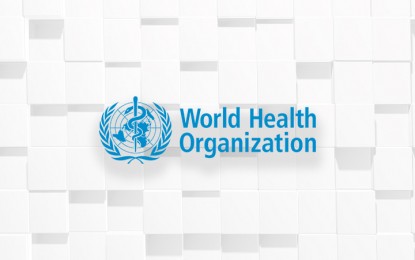
MANILA – An official of the World Health Organization (WHO) in the Western Pacific on Tuesday said the battle against the coronavirus disease 2019 (Covid-19) pandemic would be a "long" one that all should be prepared for a new normal.
"For individuals, they should make this already part of their life. For the private sector, we want them to really think about the way they can operate in minimizing the risk. And for the government, we want them to think to bring back other important regular services," WHO Western Pacific Regional Director Dr. Takeshi Kasai said in a virtual press briefing.
"As you move forward in these difficult times of our lives, approach to stopping transmission must continue to adapt and evolve along with the epidemic. Unless a vaccine is found, this process will need to become our new normal," he said.
The Philippines is at the home stretch of the enhanced community quarantine, set to end on April 30, and authorities are mulling whether to extend it anew or relax it in areas with few recorded Covid-19 infections.
Kasai urged authorities to base the decision on whether to extend or lift the quarantine on public health principles.
"Number 1, it should be data-based and follow public health principles. Number 2, there’s no such thing as you can lift all at once. We need to go on stage by stage phasing way. Number 3, those individual intervention should be addressed in a risk-based manner," he said.
Kasai warned that easing of restrictions without a strong system put in place would likely lead to a resurgence of the disease.
"It's very important to have a system to monitor the epidemiological situation and other situation so that we can continue to monitor whether we're doing the lifting (community quarantine) the right way. If not, we may have to bring certain interventions back," Kasai said.
Once stay at home orders are relaxed, Kasai said the society has to be ready for a "new way of living that strikes the right balance between measures to check the virus and enable vital parts of economy and society to function once more".
"Lifting of lockdown needs to be done gradually. I'm sure nobody wants to see another spike by lifting restrictions so soon," he said.
In fighting the pandemic, Kasai said there is no one-size-fits-all approach.
Several countries, including the Philippines, have introduced periods of lockdowns and other measures, which Kasai said have proven effective in slowing and reducing the transmission and easing the burden on overstretched health systems.
In the Philippines, the quarantine put in place since March 16 have the same goals that are aimed at keeping the number of cases manageable and ensuring that protection of the vulnerable such as the elderly, persons with co-morbidities, pregnant women, and front-liners.
Kasai said measures should remain in place even after the easing of restrictions, such as practicing proper hygiene and physical and social distancing to protect the family and the community.
The private sector may adopt ways for the staff to work from home and other measures to reduce the risk of infection in the workplace and the government to prepare for the worst and having a system to detect and care for people in case of large-scale community transmission, he said. (PNA)
